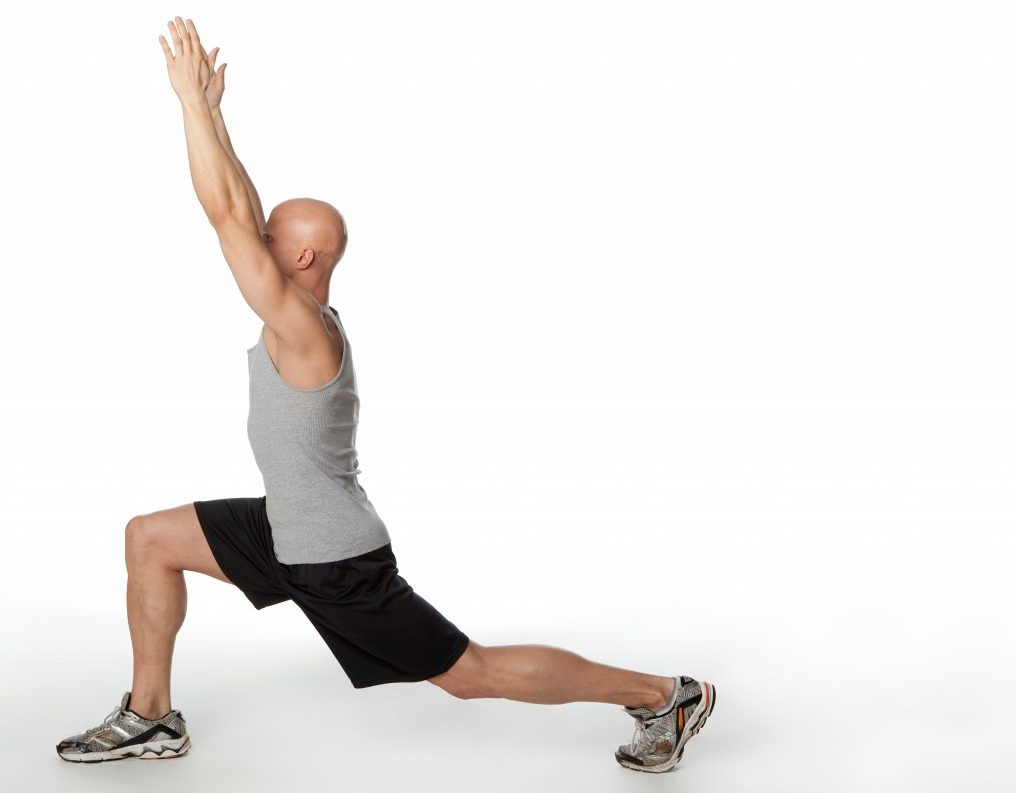Yoga Treats Generalized Anxiety Disorder

The chronic nervousness and worry of generalized anxiety disorder can impact your work, school, and relationships. Yoga can help sooth your anxiety symptoms.
Many people have anxiety that comes and goes. Almost everyone worries at some point about finances, relationships, school performance, job issues, and countless other life issues. But near constant worrying that occurs relentlessly for six months or more is different — and it characterizes the common mental health problem know as generalized anxiety disorder.
Different types of therapy (sometimes used with medication) can often successfully treat the condition. Another potential option to soothe GAD is yoga.
YOU MIGHT ALSO LIKE: Generalized Anxiety Disorder Symptoms
Generalized anxiety disorder is common
Generalized anxiety disorder is anything but uncommon. Nearly 7 percent of U.S. adults experience symptoms of the condition some time in their lives.
Generalized anxiety disorder can have a negative effect on quality of life when sufferers find it difficult to control their worry. It impacts their ability to function their best at work, in social activities, or other areas of life.
In addition to chronic worry, generalized anxiety disorder symptoms include:
- Feeling constantly restless or tense
- Having difficulty concentrating
- Becoming easily fatigued
- Being irritable
- Experiencing tense muscles
- Having sleep problems, including insomnia or restless sleep
Treatments for GAD can include stress management help, psychotherapy and, less often, prescription anti-anxiety drugs or antidepressants. Cognitive behavioral therapy (CBT) has been shown to be especially effective for generalized anxiety disorder. It teaches sufferers different ways of thinking, behaving, and reacting to anxiety-producing and fearful objects and situations.
Research into the impact of yoga on GAD shows it can also be an effective alternative for people suffering from the condition.
Yoga for generalized anxiety disorder
The study, conducted by NYU Grossman School of Medicine researchers, found that while CBT is still considered the gold standard for GAD, yoga was significantly more effective for generalized anxiety disorder than standard counseling on stress management.
“Generalized anxiety disorder is a very common condition, yet many are not willing or able to access evidence-based treatments,” says NYU psychiatry professor Naomi M. Simon, MD, lead author of the study. “Our findings demonstrate that yoga, which is safe and widely available, can improve symptoms for some people with this disorder and could be a valuable tool in an overall treatment plan.”
For their study, the NYU research team randomly assigned 226 men and women diagnosed with generalized anxiety disorder to three groups. One group received cognitive behavior therapy, another group received yoga instruction, and the third group participated in stress management education.
The results of the study showed that, after three months, CBT and yoga were significantly effective for anxiety and much more likely to help generalized anxiety disorder symptoms than stress management counseling.
While CBT showed the highest response (71 percent) to soothing symptoms, yoga was also highly effective. In all, 54 percent of those who practiced yoga had meaningfully improved symptoms. The stress education group had the lowest improvement, with only 33 percent meeting the symptom improvement criteria.
Yoga a treatment option
“This study suggests that at least short-term there is significant value for people with generalized anxiety disorder to give yoga a try to see if it works for them. Yoga is well-tolerated, easily accessible, and has a number of health benefits,” Simon notes.
She adds future research should focus on understanding who is most likely to benefit from yoga for the condition, to help doctors and therapists better personalize treatment recommendations.
“We need more options to treat anxiety because different people will respond to different interventions, and having more options can help overcome barriers to care,” she explains. “Having a range of effective treatments can increase the likelihood people with anxiety will be willing to engage in evidence-based care.”
Updated:
July 21, 2023
Reviewed By:
Janet O’Dell, RN